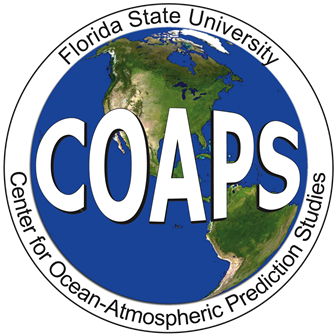
Oceanographic Data
Hurricane
-
NOAA's tropical cyclone database HURDAT includes all observed Atlantic tropical cyclone tracks since 1851. Reliable observations began in 1944, when aircraft reconnaissance produced routine tropical cyclone observations. The database can be located at:
http://www.aoml.noaa.gov/hrd/hurdat/Data_Storm.html -
NOAA also has a visualization tool that uses HURDAT data to display paths of all observed tropical cyclones since 1851. Search criteria can be narrowed to distance from a specific location, category, and timeframe. Storm reports and all observations are also available. This tool can be found at:
http://www.csc.noaa.gov/hurricanes/# -
270-Year Hurricane Record from Fluorescence (1730–1990 A.D.)4: This study linked coral fluorescence to vertical wind shear. Vertical wind shear correlates indirectly to the number of major hurricanes per year because wind shear hinders the development of a strong hurricane. The authors of the study then compared their reanalysis with HURDAT data, and compared their vertical wind shear reconstruction to NCEP/NCAR Reanalysis data. Both had strong correlations. The study also notes that reliable observations did not begin until 1944, when aircraft reconnaissance became routine for hurricane observations. Prior to 1944, all hurricane observations were obtained either from ships or on land, which meant many hurricanes were not recorded:
ftp://ftp.ncdc.noaa.gov/pub/data/paleo/coral/caribbean/atlantic-hurricanes2007.txt
ICOADS
-
Monthly Summary Statistics (2 deg x 2 deg) from International Comprehensive Ocean Atmosphere Data Set (ICOADS; 1800–Present):
http://www.esrl.noaa.gov/psd/data/gridded/data.coads.2deg.html
includes SLP, SST, scalar wind, u/v components, relative humidity, etc. with ship/buoy data. Available in raw data form (1662–2007), but most useful in plot form.

